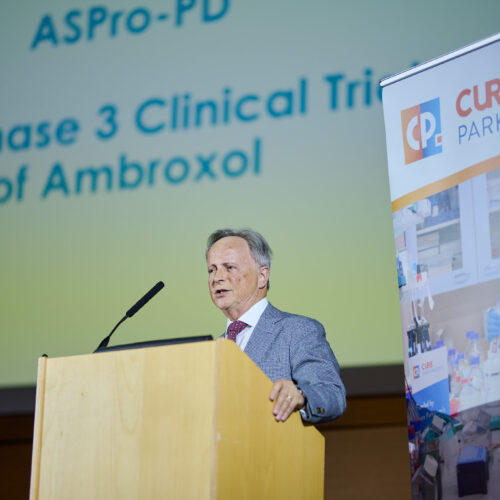SLEIPNIR, the new multi-arm clinical trial platform for Parkinson’s treatments

Cure Parkinson’s is excited to announce £1 million in funding for SLEIPNIR – an upcoming multi-arm clinical trial platform in Norway.
One of the ongoing challenges for Parkinson’s research is determining whether treatments are reaching the brain and if they are having their intended effect there. Many late-stage trials that failed to meet their primary endpoints have found evidence of low brain penetrance, indicating there was not enough of the drug in the brain to have a therapeutic effect. Given the amount of time and resources it takes to conduct a clinical trial, it is vital that we have a clear understanding of how a drug performs in the body early in the process so that we know which treatments have the best chance of success.
SLEIPNIR is an upcoming multi-arm clinical trial platform that aims to address this. Named for the Norse god Odin’s horse with eight-legs, SLEIPNIR will test up to three potentially disease-modifying treatments for Parkinson’s simultaneously against one placebo group. Led by Professor Charalampos Tzoulis at Haukeland University Hospital and the University of Bergen, the team will assess whether the drugs reach the brain and interact with their intended targets by looking at blood and cerebrospinal fluid – the fluids surrounding the brain and spinal cord – samples. They will also monitor the safety and tolerability of these therapies.
SLEIPNIR will also support the wider trial landscape. By assessing multiple drugs simultaneously in a smaller, shorter time frame, it is hoped that SLEIPNIR will reduce the risk of larger clinical trials failing. This will accelerate the process of identifying promising treatments that can then be fed into larger, late-stage clinical trial platforms, like EJS ACT-PD.
Cure Parkinson’s is committed to accelerating the testing and development of therapies aimed at slowing the progression of Parkinson’s, and as such we are very pleased to be supporting the SLEIPNIR project. Clinical trial platforms like SLEIPNIR are absolutely necessary for bringing the new potentially disease-modifying treatments to people living with Parkinson’s, and we look forward to seeing how the project develops.
Dr Simon Stott, Director of Research, Cure Parkinson’s




